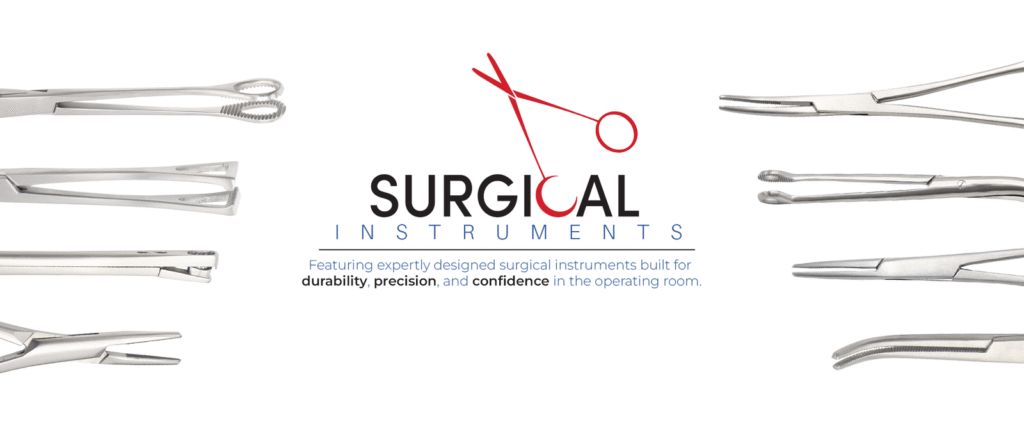
Choosing the right surgical supply store is one of the most important decisions for healthcare providers, hospitals, clinics, and surgical centers. The quality, reliability, and availability of medical supplies can directly impact patient safety, operational efficiency, and overall healthcare outcomes. With numerous suppliers in the market, selecting a store that aligns with your needs requires careful evaluation, planning, and research.
This guide outlines the essential factors to consider when choosing a reliable surgical supply store.
1. Verify Credentials and Certifications:
The first step in choosing a surgical supply store is to verify the supplier’s credentials and certifications. Reliable stores should be fully licensed and registered according to local regulations.
In addition, they should comply with industry standards such as ISO certifications, FDA approvals, or CE markings, which indicate that their products meet strict safety and quality standards. Checking these credentials ensures that the store adheres to legal and regulatory requirements, reducing the risk of receiving substandard or unsafe medical products.
2. Evaluate Product Quality and Sourcing:
The quality of medical products is critical for patient safety and effective treatment. When selecting a surgical supply store, inquire about the sourcing and manufacturing processes of their products.
Reliable stores typically source from reputable manufacturers with proven track records. They should provide clear information about product origins, batch testing, and quality assurance protocols. By prioritizing quality and transparency, you ensure that the supplies you receive are safe, durable, and suitable for medical use.
3. Assess Inventory Range and Availability:
A dependable surgical supply store should offer a wide range of products to meet diverse medical needs. From surgical instruments and consumables to specialized equipment, having access to a comprehensive inventory minimizes the need to work with multiple suppliers.
Additionally, the store should maintain adequate stock levels and offer timely delivery options. Availability of critical items is essential to avoid disruptions in surgical procedures or patient care. Stores with efficient inventory management systems are more likely to fulfill orders accurately and on schedule.
4. Check Supplier Reputation and Reviews:
Reputation is a strong indicator of reliability. Research the surgical supply store’s history, client testimonials, and industry reviews. Hospitals and clinics often share feedback about suppliers they trust, providing valuable insights into the store’s performance.
Positive reviews typically indicate consistent product quality, responsive customer service, and timely deliveries. Conversely, repeated complaints about delays, damaged goods, or substandard products may be a red flag. Choosing a store with a strong reputation reduces the likelihood of future complications.
5. Evaluate Customer Service and Support:
Exceptional customer service is a hallmark of a reliable surgical supply store. The supplier should be responsive to inquiries, willing to provide product information, and able to resolve issues quickly.
Some stores also offer value-added services such as product training, maintenance programs, or inventory consultation. These services enhance your overall experience and ensure that your medical team can use equipment safely and efficiently. A supplier that prioritizes support is more than a vendor—they become a strategic partner in patient care.
6. Consider Pricing and Payment Flexibility:
While cost should not be the sole factor, it is important to choose a store that offers fair pricing without compromising quality. Compare prices for similar products across multiple suppliers, but prioritize value over the lowest cost.
Flexible payment terms, bulk order discounts, and loyalty programs can also add convenience and financial predictability. A transparent pricing structure helps you plan budgets effectively while ensuring that high-quality medical supplies remain accessible.
7. Assess Delivery and Logistics Capabilities:
Timely delivery is essential for uninterrupted healthcare operations. When choosing a surgical supply store, evaluate their shipping and logistics capabilities.
Reliable stores provide tracking options, multiple shipping methods, and guaranteed delivery timelines. They also have contingency plans for emergencies or high-demand periods. Efficient logistics ensure that your facility receives critical supplies when they are needed most, reducing operational risks.
8. Look for Long-Term Partnership Potential:
Finally, consider the potential for a long-term relationship. A surgical supply store that consistently meets your needs can become a trusted partner rather than just a vendor.
Long-term partnerships often lead to benefits such as priority access to new products, dedicated account managers, and better overall service. Stores invested in building long-term relationships demonstrate reliability, accountability, and commitment to supporting your healthcare goals.
Conclusion:
Choosing a reliable surgical supply store requires careful evaluation of credentials, product quality, inventory, reputation, customer service, pricing, logistics, and partnership potential. By following these steps, healthcare providers can ensure access to high-quality medical supplies, maintain operational efficiency, and prioritize patient safety.
A dependable surgical supply store is not just a source of medical products—it is a crucial partner in delivering consistent, safe, and effective healthcare. Taking the time to select the right supplier today can prevent challenges, improve care outcomes, and create a foundation for long-term success in the medical industry.





